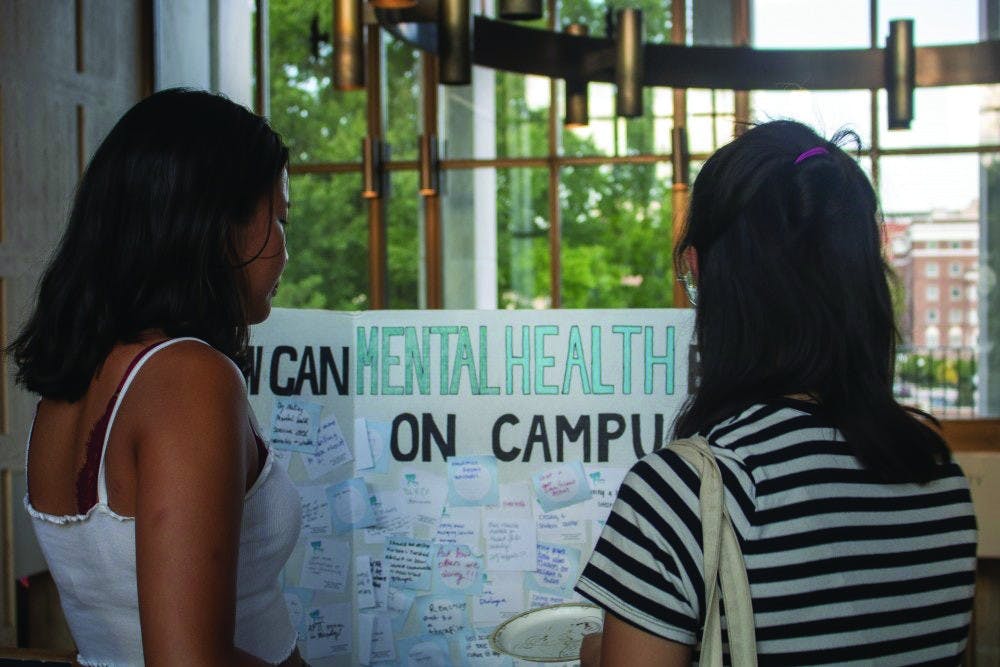In 2016, student and faculty representatives from across the nine schools of Hopkins convened to discuss ways to improve mental health on campus. This spring, the Task Force on Student Mental Health and Well-being released a final report, which provided data and recommendations on the climate surrounding mental health at Hopkins.
Co-chair of the Task Force and Chair of the Department of Mental Health at the Bloomberg School of Public Health Daniele Fallin addressed some of the suggestions outlined in the report. She explained that suggestions fell under two categories: those concerned with improving the climate at Hopkins and those concerned with structural changes to mental health resources on campus, such as the Counseling Center.
Fallin believes that the climate at Bloomberg has changed since the report was released.
“There really has been a shift in climate towards more awareness, acceptance of the challenges of the student and the mental health consequences of this timing in life, and then also this timing in life coupled with the very stressful experience of being a student at a rigorous university,” she said.
Since the release of the report, Bloomberg professors have also been encouraged to include information about mental health resources on syllabi and to provide accommodations for students who cannot attend class because of a conflicting appointment with a psychologist.
Fallin added that circulating statistics about the prevalence of mental illnesses at Hopkins helps faculty understand that mental health on campus is a serious concern and helps students understand that others are dealing with similar issues.
“It seems to me from talking to students that concrete data is also reassuring that you are not alone, that this is not an isolated thing, that you are not a rare event, that these are shared experiences even if they’re not always spoken aloud, and it has been able to break down some of that stigma and make it more okay to share your experiences,” she said.
Fallin also noted that the report showed LGBTQ students, students experiencing racism and students feeling isolated, felt less supported than others. She stressed the importance of providing resources for particularly vulnerable populations.
Andrew Hellinger, the co-director of A Place To Talk (APTT), a peer listening service on campus, has also noticed changes surrounding mental health on campus after the release of the report. He explained that APTT, along with other student groups, collaborated to form a coalition which meets regularly to discuss ways to improve mental health and well-being on campus.
Hellinger noted some administrative changes since the Task Force, such as the opening of a new APTT room in Brody. He also explained that since the Task Force, there have been shorter wait times and walk-in appointments at the Counseling Center.
“We were really happy to hear this semester how the Counseling Center has walk-in hours, which we think makes it much more accessible to all students,” he said. “Those small changes in the infrastructure have already helped the students a lot.”
Anna Koerner, co-director of APTT, agreed that she has seen improvements in student attitudes toward mental health.
“It’s just really cool seeing how much mental health has become a hot topic just since last spring,” she said. “The only way to address these issues is to openly talk about them and decrease the stigma that’s associated with seeking help and talking about mental health, and realizing that mental health is just as relevant and important as physical health.”
Madelynn Wellons, the president of Advocates for Disability Awareness (ADA), has worked to promote mental health on campus. She believes that the culture at Hopkins can have a negative impact on student well-being.
“There’s this culture of ‘well, I’m suffering more than you,’” she said. “That culture is really, really negative, and it encourages people to be in Brody until God knows what hour in the morning, and so the academic pressures can lead to a lot of really bad issues with mental health.”

She explained that while she too appreciates changes such as the improvements to the Counseling Center, she would like to see the destigmatization of conversations surrounding mental health at Hopkins.
“We’re at a bit of a crossroads where our culture is negative when it comes to a lot of these things... but there’s also this rise in the self-care community at Hopkins, and there are a lot of people speaking out,” she said. “We’re at this moment where we’ve really got to push our way through, out of the negative culture, or we’re going to get dragged back in if there’s not enough change.”

















